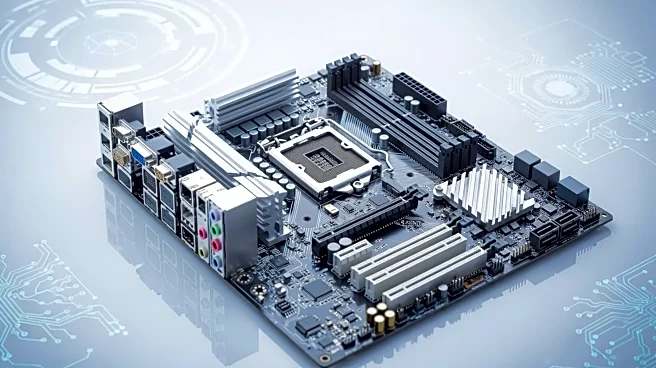What's Happening?
Import taxes, also known as customs duties or tariffs, are fees imposed by governments on goods entering their country from abroad. These taxes serve multiple purposes, including generating revenue, protecting domestic industries, and controlling the flow
of goods. The tech industry, which frequently exchanges complex goods like semiconductors and electronics, is particularly affected by import taxes. As global trade policies evolve, countries are adjusting their import taxes, especially in high-value sectors like AI, GPUs, and semiconductors. The United States has been increasing reciprocal tariffs to protect domestic markets, targeting key sectors such as renewable energy components.
Why It's Important?
The adjustment of import taxes has significant implications for the U.S. tech industry. Higher tariffs can increase costs for companies importing essential components, potentially leading to higher consumer prices and reduced competitiveness. This protectionist approach aims to bolster domestic industries by making foreign goods less attractive, but it may also strain international trade relations. Companies involved in tech imports must navigate these changes carefully to manage costs and maintain compliance with evolving regulations.
What's Next?
As trade wars and protectionist measures continue, businesses in the tech sector may need to explore alternative sourcing strategies or invest in domestic production capabilities to mitigate the impact of rising import taxes. Monitoring policy changes and engaging in advocacy for favorable trade agreements could be crucial for industry stakeholders.
Beyond the Headlines
The broader implications of import tax adjustments include potential shifts in global supply chains and increased focus on domestic innovation. Ethical considerations arise regarding the balance between protecting local industries and fostering international cooperation.















